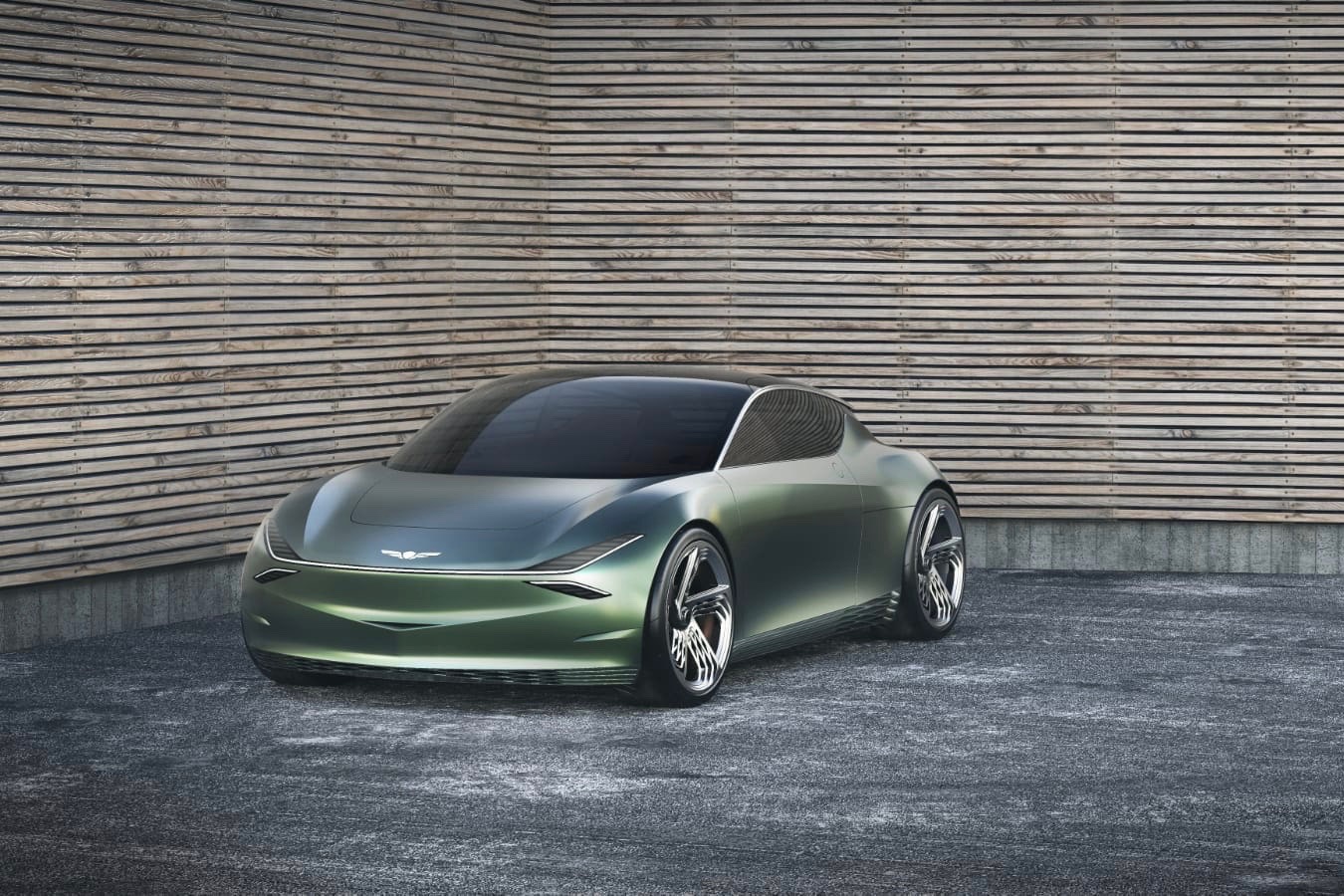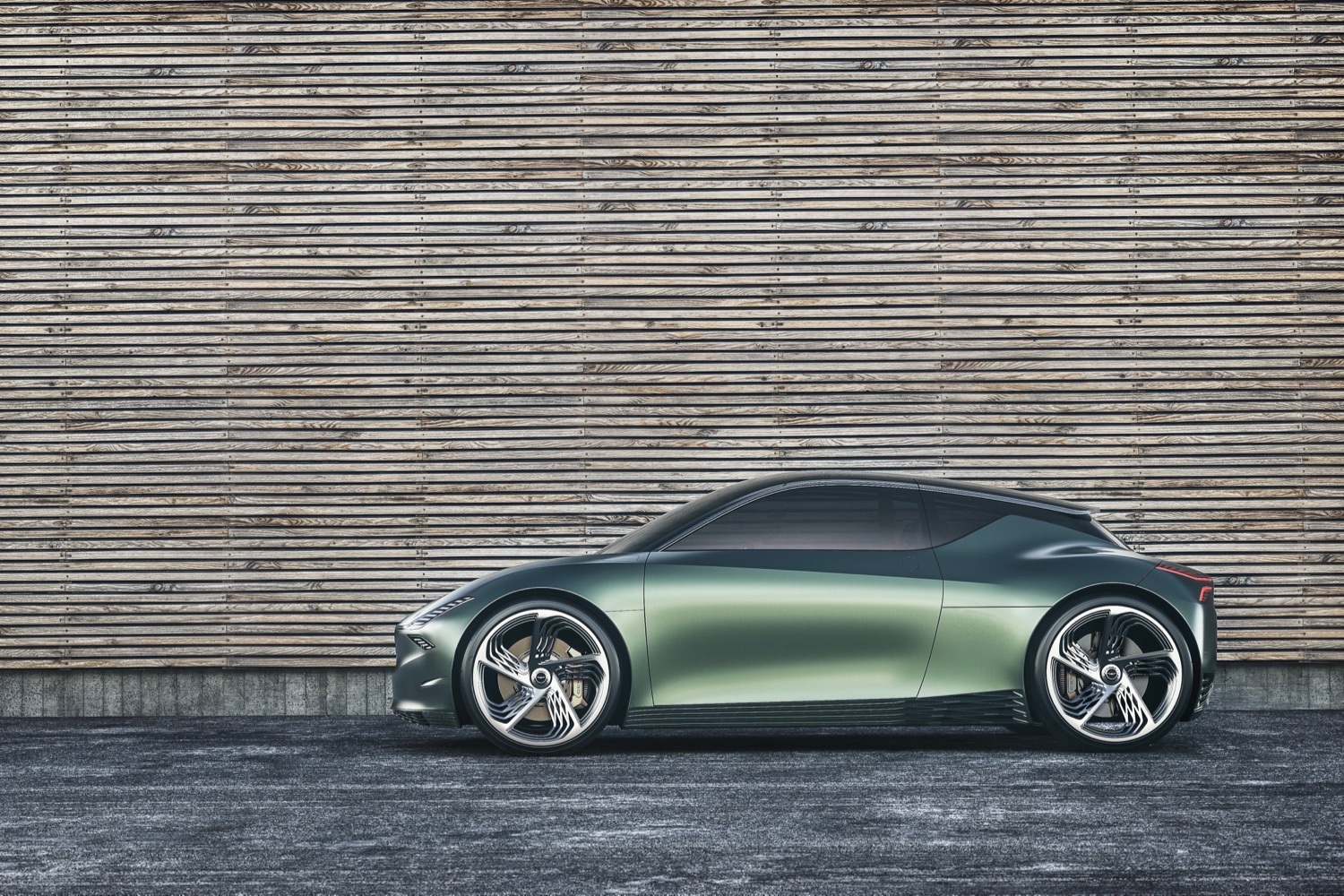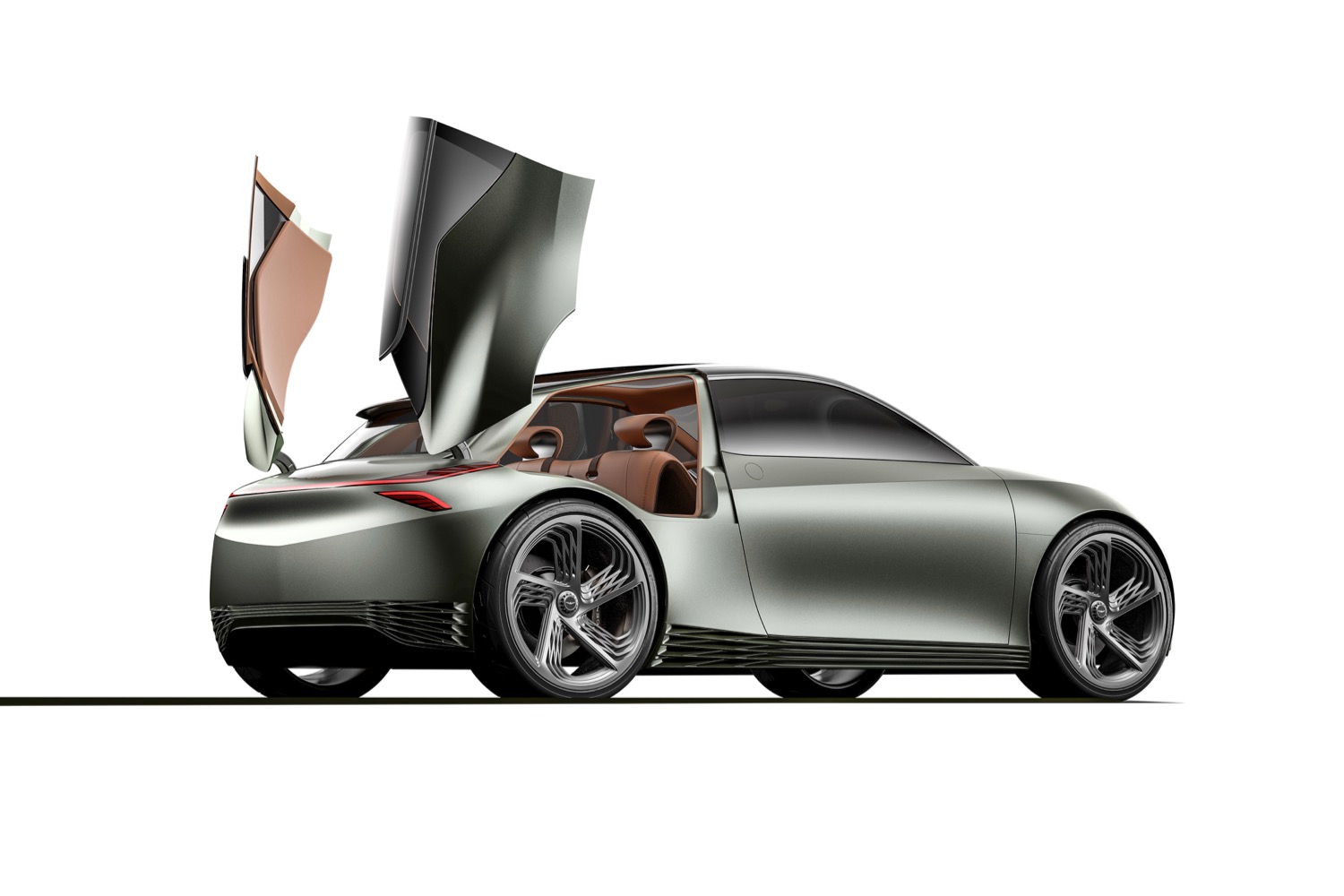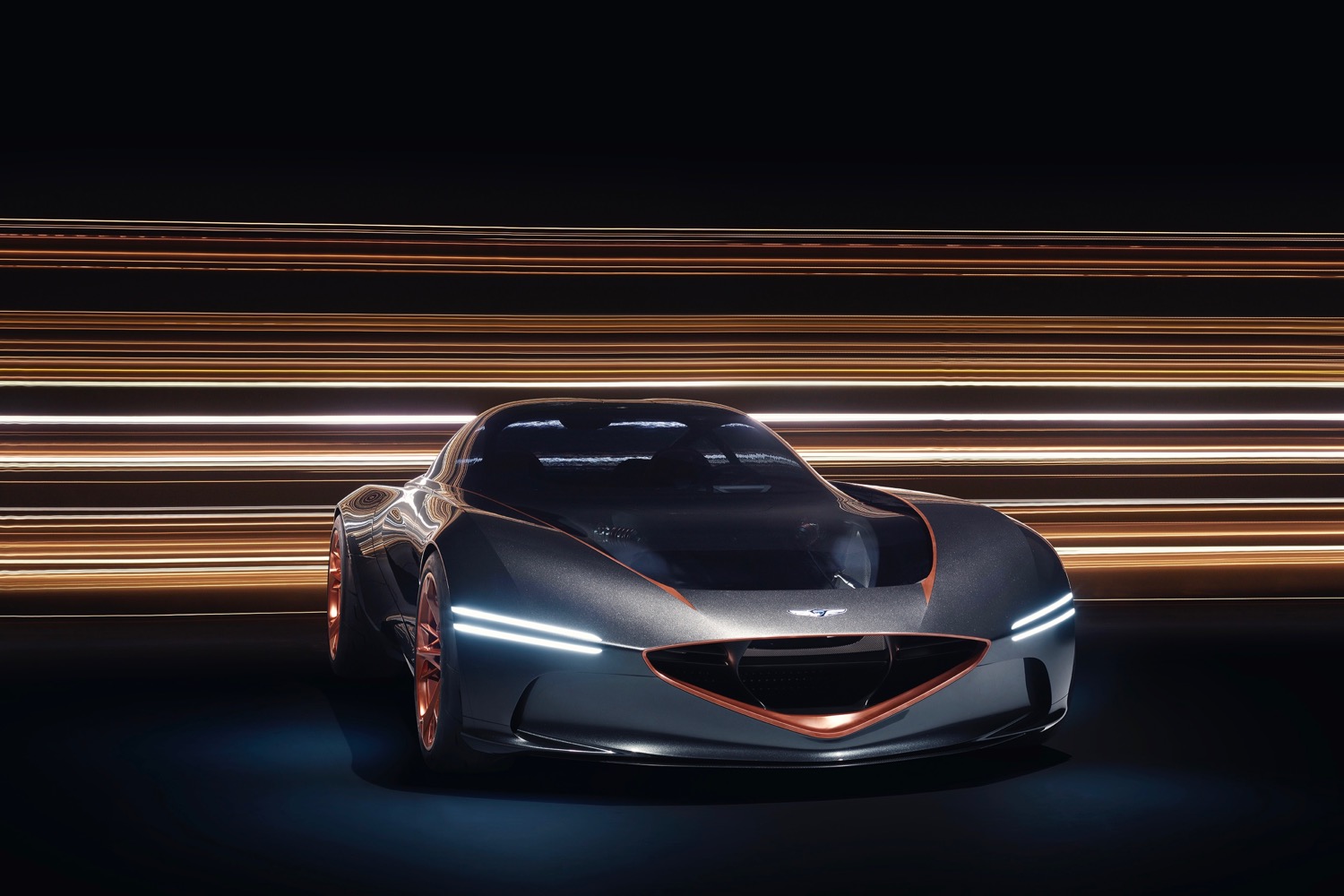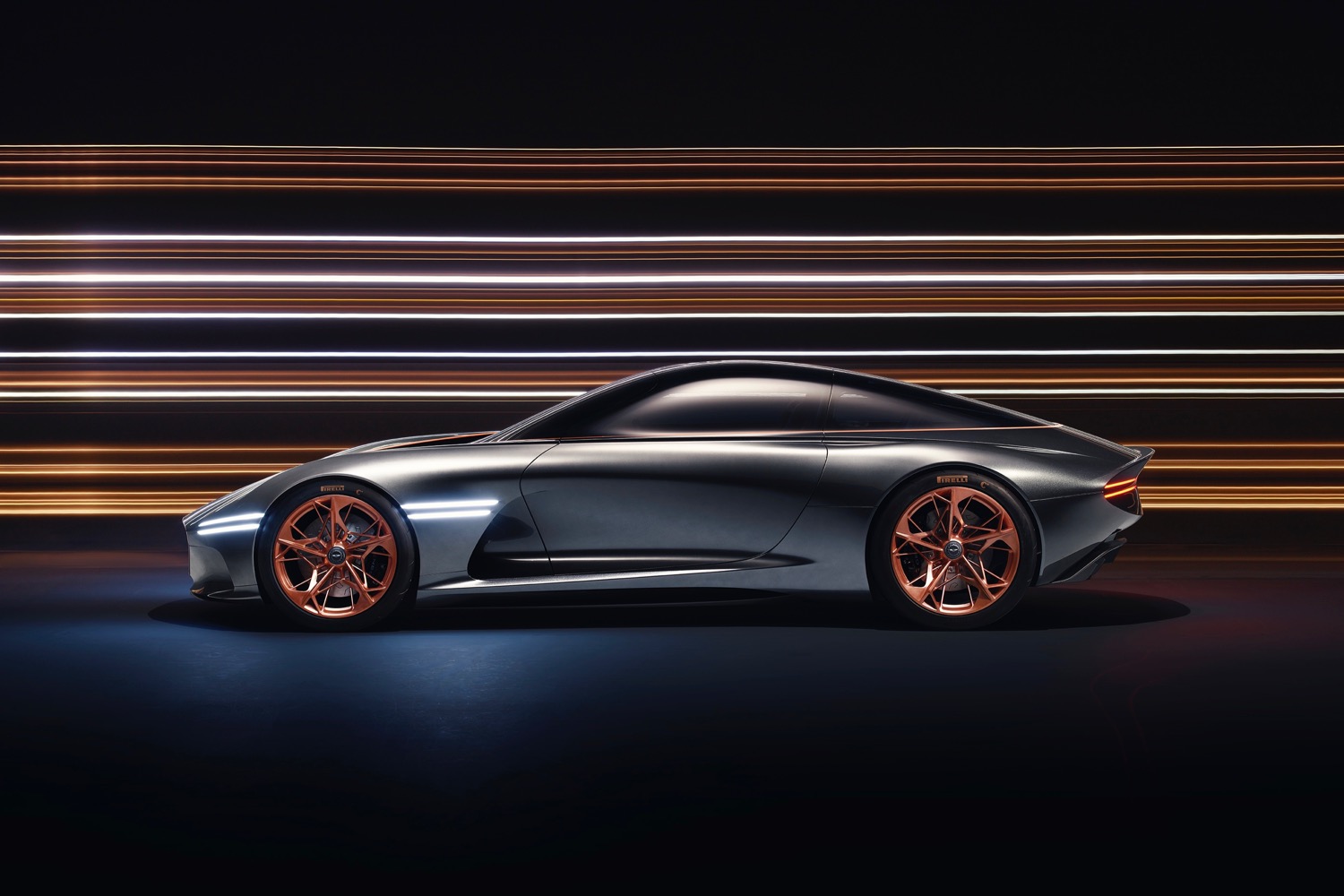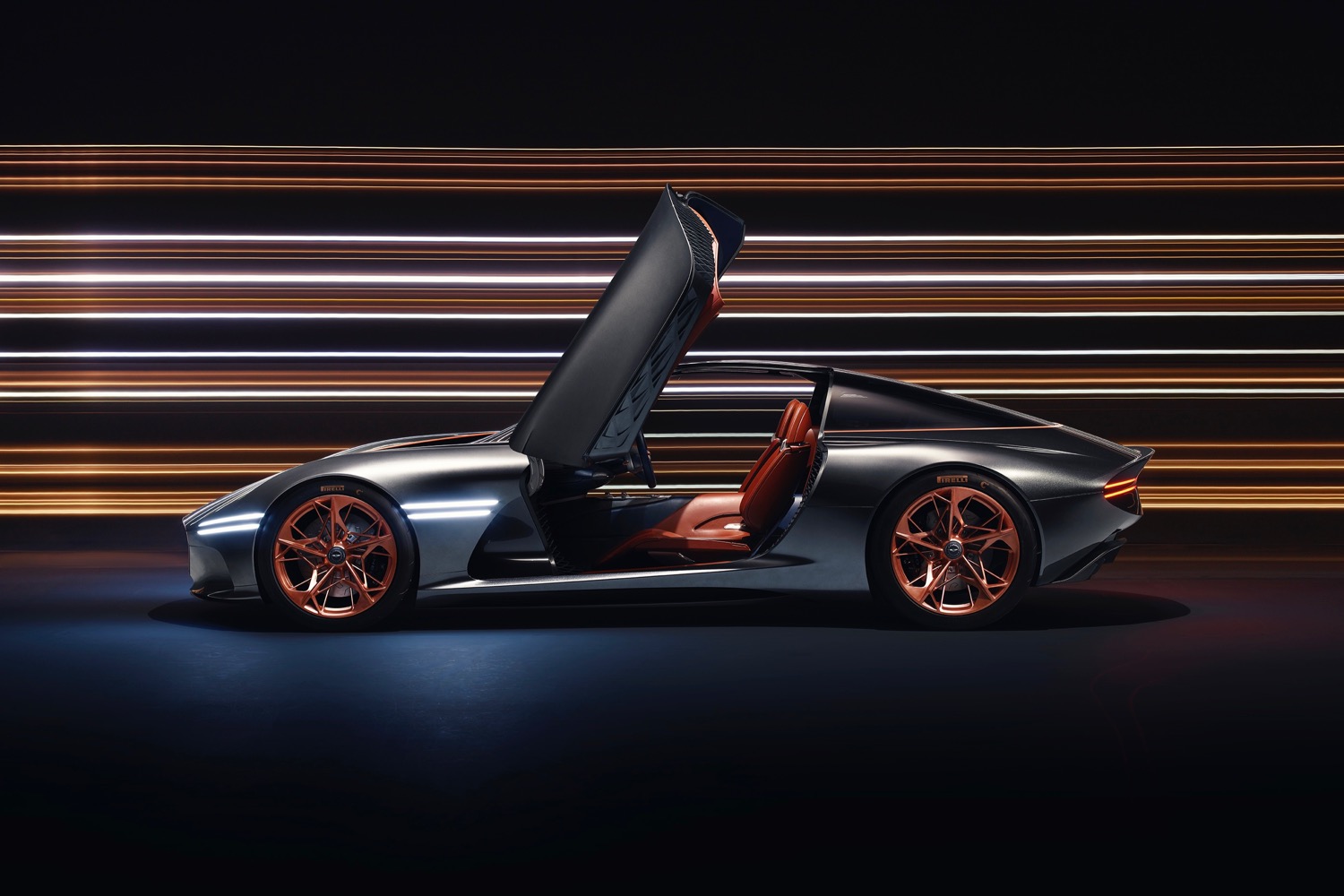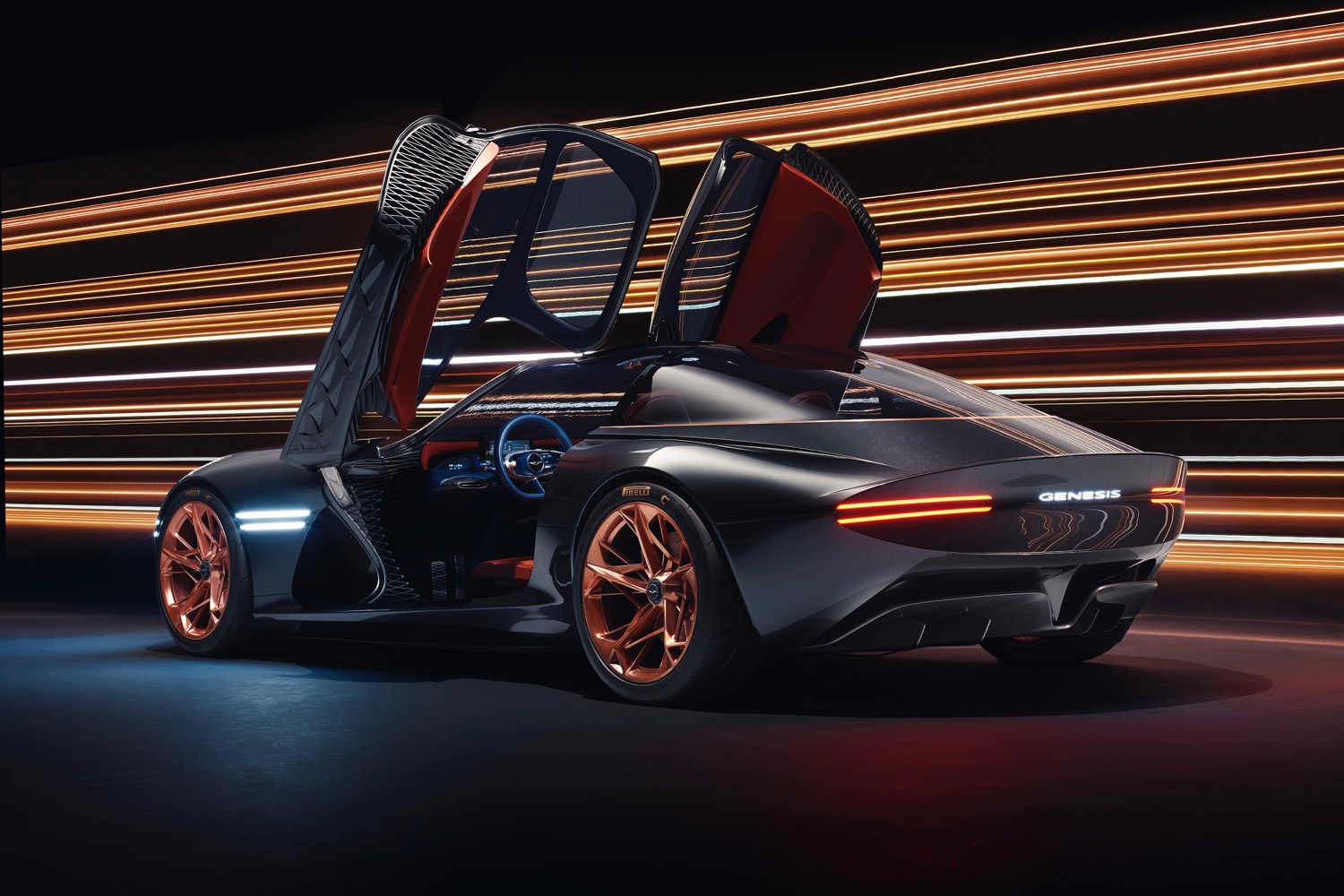Genesis, the upmarket brand created by Hyundai, shed light on how its range will expand during the 2020s. The company pledged to release three more cars to offer a six-model lineup, and at least two could get electric power.
After unveiling the GV80, the company’s first SUV, design boss Luc Donckerwolke showed the crowd an image depicting the silhouette of six cars neatly arranged in a row. Some are already available in showrooms, like the rear-wheel-drive G70 sedan, but the three that caught my eye are the ones Genesis hasn’t shown the final versions of yet.
One silhouette closely resembles the Mint concept (shown above) Genesis introduced at the 2019 New York Auto Show. It takes the form of a small, city-friendly hatchback equipped with funky-looking rear doors and an electric powertrain that offers about 200 miles of driving range. Its 350-kilowatt fast-charging technology tops up the battery quickly, which makes the Mint more road trip-friendly than its range suggests, and its cabin receives six screens plus a seventh one embedded in the steering wheel. It’s unlike any model available in 2020, and that’s exactly what Genesis stylists were aiming for. On a secondary level, it boldly argues the city car segment is far from dead.
Another one of the mysterious silhouettes shows a curvaceous body characterized by a long hood and a sloping roof line. It looks like the Essentia (pictured above), the design study Genesis brought to the 2018 edition of the New York show. The firm quoted a three-second sprint from zero to 60 mph thanks to an electric powertrain made up of multiple electric motors. That’s admittedly vague, but it sounds feasible, especially considering Hyundai has invested a considerable amount of money into Rimac, the Croatian firm looking to electrify the supercar segment.
What’s next? We’ll need to be patient. “I know we would like to see more light on this photo, but for now we will keep the mystery,” Donckerwolke teased during the presentation. Genesis is focusing on the GV80 for the time being.
Looking ahead, the company already announced it will release its first series-produced electric car in 2021. Time will tell whether it’s a high-performance coupe, a fun-sized hatchback, or something else entirely. What’s nearly certain is that we’ll see a second, smaller SUV tentatively called GV70 before Genesis branches out into the EV segment.
Editors' Recommendations
- Fake engine noises in electric cars need to die
- Genesis turns up the heat with GV60 Magma concept
- Mercedes’ electric eSprinter isn’t just greener, it’s better
- Honda previews future EV lineup with Zero Series concepts
- Kia reinvents the van with its electric Platform Beyond Vehicles

